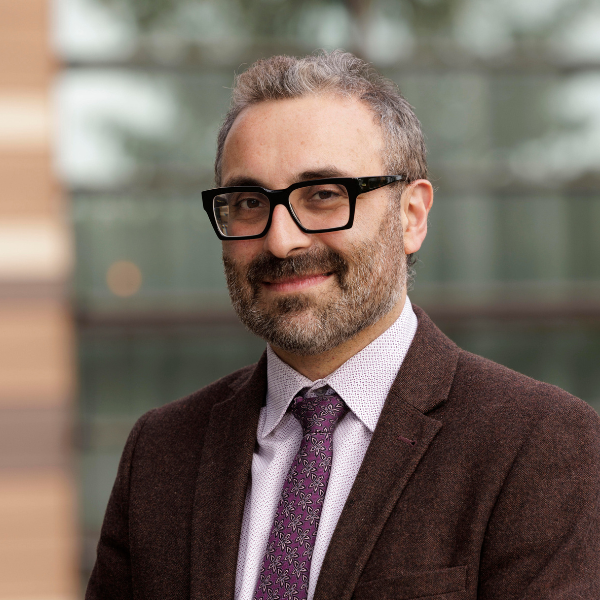
The three Ps: priority, practice, and people
Priority in higher education
In higher education, we’ve known for some time that inequalities in the sector are stubborn and persistent – and far from randomly patterned. We’ve also known that we need to invest more in evaluation to assess how we can better address those inequalities.
For our first conference in 2021, we emphasised making better evaluation a priority. This virtual event kicked off with a speech from the then higher education minister Michelle Donelan MP and concluded with the then shadow education secretary Kate Green, emphasising the cross-party commitment addressing these issues. We also heard from the Office for Students, and leaders of other ‘What Works’ Centres who underscored the importance of prioritising evaluation to enhance understanding and policy across education, employment, and wellbeing sectors.
Last week at ‘How to Evaluate’ in Nottingham, we saw the fruits of the work of TASO, the Office for Students, and many others – including the 125 delegates – in making evaluation a priority. There is little doubt that recent changes in access and participation plan regulation have played a key role here, as has the Director for Fair Access and Participation John Blake’s clear and consistent emphasis on evaluation, a commitment delegates have heard across all of our conferences.
Practice: Developing effective tools
If ensuring that evaluation is a priority is a key first step, developing resources for higher education to effectively implement evaluation soon follows. Over the course of two days my TASO colleagues unpacked our ‘toolbox’ across a number of sessions.
It was evident from delegate interactions that there is a collaborative effort among evaluators, practitioners and researchers to integrate and enhance evaluation practices.
People: Building a community of practice
While our first conferences in 2021 and 2022 focused on the importance of prioritising evaluation, our most recent two conferences have focused more explicitly on upskilling, supporting and learning from those working directly on evaluation.
There is now a clear community of practice, comprising committed and skilled individuals across a range of institutions, without whom TASO’s work would have little impact, and from whom we learn.
Collaborative efforts
I’d also like to mention my fantastic colleagues. Our team has grown to 15 members, and while we remain a relatively small organisation, we pack a big impact. This is down to the skill but also the commitment and collaboration of each and every one of my colleagues, from handling logistics for the conference, through to supplying and expertly delivering the content and format for each session.
I would also like to express my gratitude to all our expert speakers throughout the years – from academics to practitioners, students, government and the OfS – for their insightful thoughts and inspirational presentations.
Challenges and moving forward
As with all reflections, it’s important both to celebrate and identify our achievements, as well as to be open about any challenges. For all the progress we’ve made, it’s notable that inequalities remain, and that some people are less able to access or positively experience higher education. Across all four of our conferences we heard from students, and they consistently highlighted how the statistics we cite are a lived reality for them.
This year, Georgia Roe-Ely highlighted how policies and practices designed to increase employability for all students – for example an unpaid placement – excludes a whole cohort who simply can’t afford to undertake unpaid work. Amelia McLoughlan, the Network Director of Disabled Students UK made a similar observation, indicating that universities don’t always do enough to listen to disabled students, a reminder to all of us of the need to involve the student voice and to ensure their rights are affirmed in practice not just principle.
A second challenge is navigating and ensuring that universities and colleges as institutions embed and sustain both evaluation practice and their commitment to tackling inequalities. At our past two events Professor Eunice Simmons, TASO’s Chair, and the University of Chester’s Vice Chancellor, spoke directly to delegates to outline how they could better ensure their knowledge and voice was heard by senior leaders, giving us all tips on how to better understand and influence senior leaders.
By way of a conclusion, I’d like to cite the comments made by another TASO trustee, Jane McNeil, who spoke in conversation with the insightful Professor Charlotte Croffie on influencing senior leaders. Her advice to delegates was to ‘proceed until apprehended’. We need to keep making the case that evaluation is a priority, to keep pushing the boundaries of what good evaluation looks like in practice, and to develop and support the people making change happen across UK higher education.
As we celebrate the successes of conference 2024, and reflect on lessons learned since 2021, we look forward to building on our achievements and continuing to tackle the outstanding challenges in 2025 and beyond. As one of my colleagues put it, ‘at TASO we’re always here to help’.
Thank you to all who attended this year’s conference. Stay tuned for more events and updates over the summer, and make sure to sign up for our newsletter to keep informed.
See you in 2025!